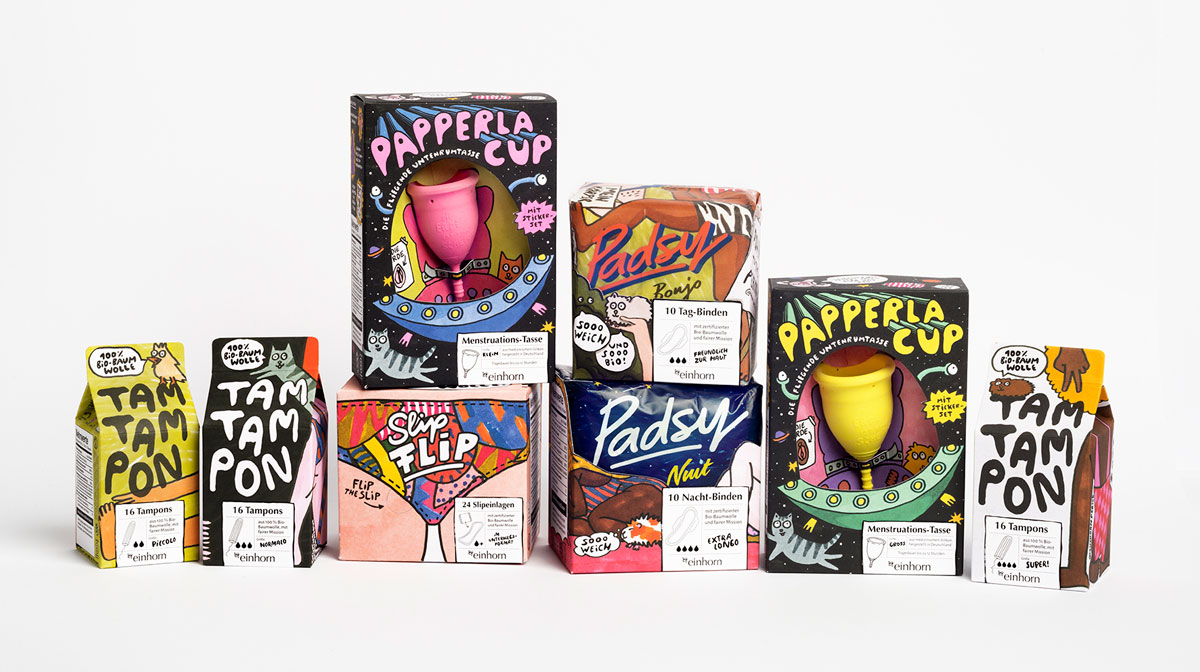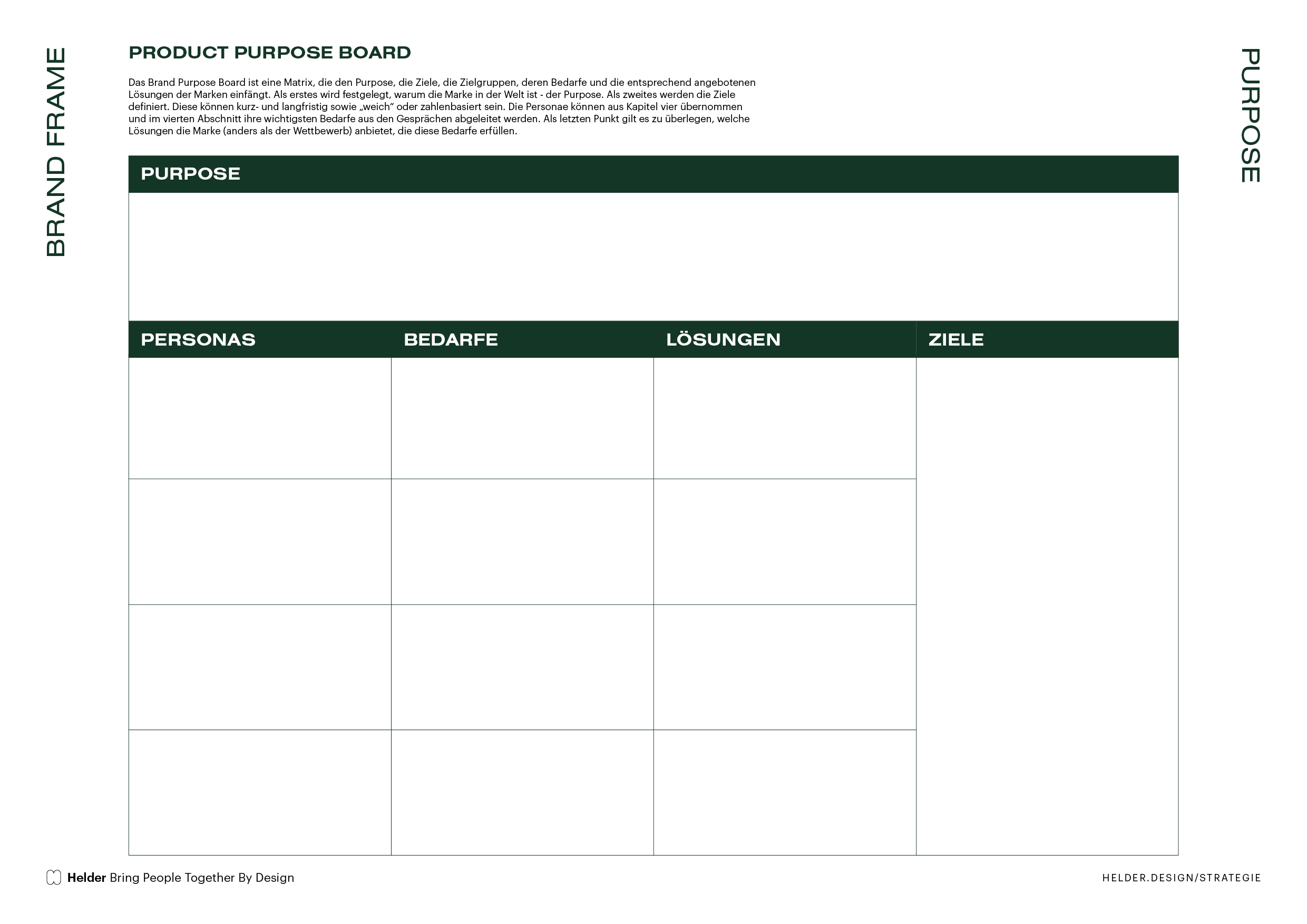Brands must be meaningful
In order to survive on the market in the face of enormous competitive pressure and unprecedented media visibility, brands must be authentic, relevant and distinguishable. In affluent and knowledge-based societies, many purchases no longer cover basic needs, but fulfill desires, and this with an almost unmanageable selection of goods and services that are very similar to one another. It is simply hopeless to try to differentiate oneself solely on the basis of quality or even price-performance ratio.

„Well, Mr. President, I’m helping put a man on the moon.“
A janitor’s answer to then U.S. President John F. Kennedy’s question about his job at NASA’s space center
This is all the more true at a time when not only millennials, but people of all ages and social classes are asking themselves the question of meaning brands must therefore take a stand – not only in their own market, but also in the world; as service providers, producers and employers. Pure profit maximization can no longer be the sole raison d’être of a future-oriented company. Brands that want to be relevant must have a purpose.
Brand Purpose as an integral brand component
In the current discourse on the raison d’être of companies, the brand purpose or corporate purpose is the key concept. Purpose refers to a company’s raison d’être beyond profit orientation. It does not mean corporate social responsibility; rather, purpose corresponds to the intrinsic “why” of the company. It describes the socially relevant added value that a company or a brand creates. In this respect, the current purpose discourse is related to the entrepreneurial responsibility enshrined in the German Basic Law, which states: Ownership obligates. At the same time, its use should serve the common good.
THE WHY DETERMINES ENTREPRENEURIAL ACTION – Golden Circle Template
Brand purpose is essential
Just how essential brand purpose is for the future viability of brands can be seen, for example, in the downfall of Schlecker. This is impressively traced in an episode of the popular business podcast “Power and Millions”. Schlecker was once the largest drugstore chain in Europe, which some people may still remember today. The conclusion of the journalist team Hannah Schwär and Kayhan Özgencan, however, is as devastating as it is accurate: Some people remember Schlecker. But no one misses this brand. Ultimately, it was simply not relevant.
No brand without purpose
Why was Schlecker insignificant as a brand at the end of the day? Schlecker’s sole raison d’être was market power through expansion at any price, in the truest sense of the word. This was first and foremost at the expense of the so-called Schlecker women, who worked under more than questionable conditions, at the expense of what could in any way have been called a shopping atmosphere – and in the end at the expense of profitability. A half-hearted campaign and an equally half-hearted rebranding with PoS makeover were supposed to save what could no longer be saved in 2011, also because no investor wanted the brand in spite of this. This example shows dramatically that where there is nothing in terms of business ethics, there is nothing left at the end of the day – literally.

Breaking Barriers: Nike
„Nike exists to bring inspiration and innovation to every athlete* in the world. Our Purpose is to move the world forward through the power of sport – breaking barriers and building community to change the game for all. *If you have a body, you are an athlete.“
To live up to its own Purpose, Nike invests in three areas: People, Planet, Play. This includes programs such as community building, diversity in its own workforce, recycling, promoting physical activity for children, and much more. It’s no coincidence that the brand is once again among the top 25 in 2021 with a brand value of almost 84 billion US dollars. The strong purpose makes the sneaker a statement.

Unfuck the economy: einhorn Kondome
“Climate change, poverty, disease, groundwater pollution and the widening gap between rich and poor are just some of the challenges facing our world today. We want to take responsibility and believe that companies should not be part of the problem but of the solution. We then want to make the whole thing sexy.”
einhorn Kondome describes itself as a purpose company. In 2015, the startup was founded to produce fair, sustainable, and vegan condoms with branding and packaging that has design aspirations beyond the drugstore aesthetics that are common here. The purpose of fairstainability (fairness + sustainability) is crucial for all company activities: from the transparent value chain for condoms and period products, to investing profit shares in charitable projects, to responsible ownership as an alternative ownership model. In the case of einhorn, this means, among other things, that the voting rights of the company are always held by employees and that shares in the company cannot be inherited. Fairstainability thus becomes the legal basis for brand management.
The Best Men Can Be: Gillette
„We will provide branded products and services of superior quality and value that improve the lives of the world’s consumers, now and for generations to come.“
Sehr kontrovers diskutiert wurde „The Best Men Can Be“, eine von mehreren Kampagnen, mit denen Gillette dem recht umständlich formulierten Brand Purpose Rechnung trägt. Die Kampagne propagiert ein neues Männerbild jenseits von überkommenen Stereotypen, das als Vorbild für kommende Generationen dienen soll. Es war unausweichlich, dass sich ein Teil der Zielgruppe von der Darstellung vermeintlich „typisch männlicher“ Verhaltensweisen angegriffen fühlte. Das Beispiel zeigt, dass ein gelebter Purpose Konsequenz bedeutet. Gillette scheint weniger darüber besorgt, Kunden mit einem bestimmten Mindset zu verlieren, als vielmehr darum, die Erzählung über die tradierte Muster oder gar Veranlagung von Männern zu ändern.
Putting in long hours for a corporation is hard. Putting in long hours for a cause is easy.
Those who have a purpose are more productive
Start-ups such as einhorn, but also larger, established companies such as Zeiss, show that it is possible to align corporate strategy with purpose and be successful and profitable in the process. Studies have shown that purpose is not limited to altruistic striving. Accordingly, brands that align their actions with their purpose are demonstrably more successful, both in terms of overall performance and customer orientation, sales and new customer acquisition, such as innovative strength and digital transformation.
How purpose, vision and mission differ from each other
At first glance, it is not easy to clearly distinguish between brand purpose, vision and mission. On closer inspection, however, they form a hierarchy. The purpose is at the highest level, hovering above things, so to speak. It answers the question of why the company is in the world. In a sense, it is also addressed to the entire world, namely to all stakeholders of the brand, both internally and externally. The brand vision describes the longer-term goal of the company, e.g. a positioning or reputation to be achieved. It is aimed primarily at employees and serves as motivation and orientation. The mission summarizes the concrete services of the brand in the sense of a value proposition and is accordingly directed primarily at customers.

Brand purpose, vision and mission should naturally relate to each other or be in relation to each other. Then they unfold their power as a veritable corporate coordinate system.
Purpose first, strategy second
Formulating a brand purpose for purely strategic marketing purposes without living it will fail to have the desired effect. People have an excellent sense of whether a message, an attitude is sincere – or not. This applies to potential buyers as well as employees. A promise that turns out to be stale lip service can be disappointing, demotivating, even embarrassing, and thus extremely damaging for the brand. The aforementioned media transparency contributes to the fact that Potemkin villages are quickly unmasked as such. Therefore, the purpose should always be the driving force for the brand’s strategy, not the other way around.
Brand Purpose FAQ
What is Brand Purpose?
The Brand Purpose describes the reason why a company is in the world, apart from pure profit orientation. The Brand Purpose includes the social added value, which should contribute to the common good.
Why is Brand Purpose important?
Brand Purpose makes brands relevant. People increasingly ask themselves the question of purpose and include it in their decisions, whether as employees or customers. With a purpose, you take a stand and differentiate yourself from brands with pure profit maximization.
How do you define the Brand Purpose?
A brand purpose should be sincere and authentic and serves as an impulse generator for the brand strategy. The starting point is the added value generated by creating value in society, which can also be lived.
What is the difference between Brand Vision and Brand Purpose?
The Brand Vision describes the long-term goal of the company, is primarily aimed at employees and serves to motivate them. The purpose answers the question why the company is in the world and addresses all stakeholders.
How do you formulate a Brand Purpose?
The brand purpose is directed at the entire world – at all interest groups. The goal is to formulate a promise that floats at the top level of the company’s actions. Purpose statements should not be contrived, but arise from a sincere attitude.
Purpose vs. Corporate Social Responsibility?
Purpose refers to the business ethical stance of a company: it is the promise to create added value in the local environment or in the global market environment, while Corporate Social Responsibility refers to environmental and social responsibilities of a company.
Our Strategy Expertise
Brand Purpose is in the DNA of the brand
… most of the time. That’s the good news: there’s often no need for “made-up” purpose statements. At Helder, we are convinced that every brand has an inherent Brand Purpose. In our brand workshop, we bring this purpose to light in a co-creative way with our clients.
Looking for a purpose?
Look no further.

